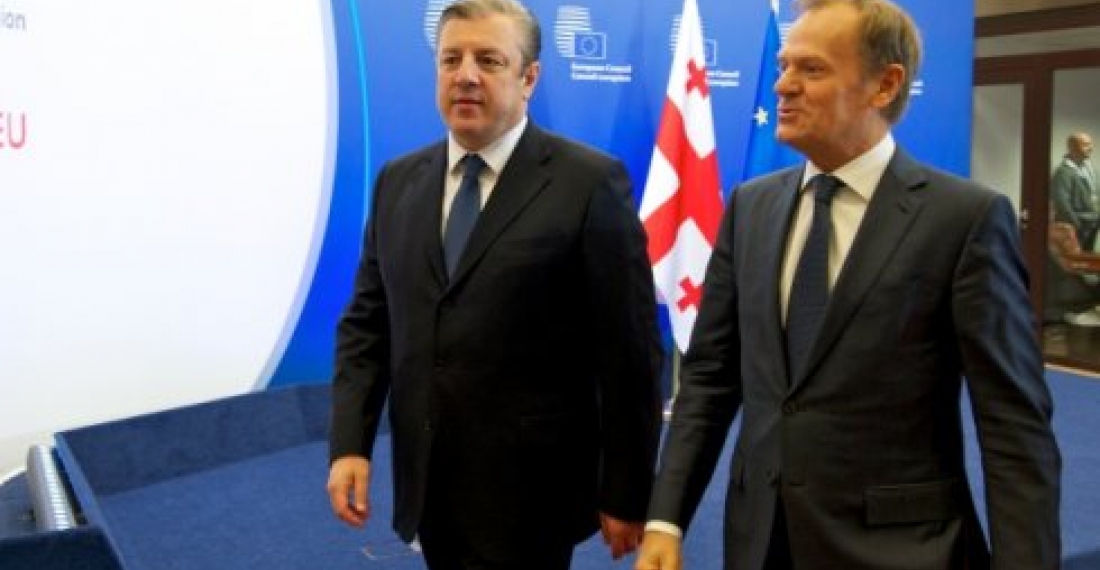Georgian Prime Minister, Giorgi Kvirikashvili is currently in Brussels where he has been given a very warm welcome by the leaders of the European Union. Kvirikashvili, accompanied by a number of senior ministers will today (Friday, 2 December), participate in a meeting of the EU-Georgia Council. In the meantime however he has been meeting with leaders of the European Union, including Council president, Donald Tusk, European Parliament President Martin Schultz and a number of European Commissioners.
The visit was partly overshadowed by the news that the final decision on extending visa free travel to Georgians wanting to visit Schengen countries has once more been postponed. The postponement is a result of the EU's complicated decision making process, and has nothing to do with the fulfillment of the necessary criteria by Georgia. All EU leaders and officials who have spoken on the matter have confirmed that Georgia has done what was expected from it on the matter.
The situation has caused some embarrassment to EU officials who have had to explain it to their Georgian counterparts.Council President Donald Tusk told journalists after his meeting with Kvirikashvili that "Georgia deserves a timely and positive finalisation of its visa liberalisation" as the country has met all its obligations on the matter.
"We are now working hard on the EU's response. And I want to underline that only on the EU side because this is now only our internal problem; to make sure that the required visa suspension mechanism, which is a horizontal mechanism for all of the EU's visa arrangements, will be agreed as soon as possible," said Tusk.
Both EU and Georgian officials are however quite upbeat on the current state of Georgia-EU relations. EU officials have gone out of their way to extend to Kvirikashvili a warm welcome during his stay in Brussels and have praised his leadership, as well as Georgia's implementation of an ambitious reform programme. In every meeting EU officials extended to Kvirikashvili congratulations on his recent election victory and praised the conduct of the elections.
A senior source in Brussels told commonspace.eu that EU-Georgia relations were exemplary, and the EU was determined not to let the visa liberalisation issue spoil the relationship. This seems also to be the approach of the Georgian side. Speaking at a dinner at the Georgian Embassy in Brussels, attended by senior EU officials, MEPs and members of the think tank community, Kvirikashvili said the Georgian government believed that the EU will deliver on its promises. In his speech Kvirikashvili highlighted changes the government was implementing in the field of education as part of its strategy of building a strong and resilient state.
source: commonspace.eu
photo: The president of the European Council, Donald Tusk with Georgian Prime Minister Girogi Kvirikashvili in Brussels on 1 December 2016 (photo courtesy of the press service of the European Council)






